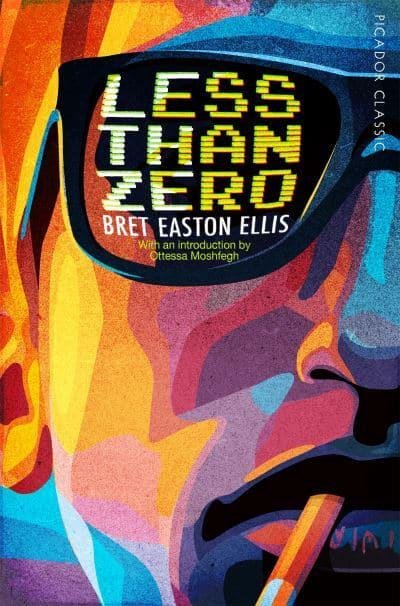In the opening lines of “Less Than Zero” Ellis seems to lull readers into believing that his debut book will be a comic coming of age novel. 18 year old Clay has just returned to his native city of Los Angeles during the winter break of 1984 and been picked up at the airport by his ex-girlfriend Blair who comments that “People are afraid to merge on freeways in Los Angeles.” When this novel was first published in 1985 I don't know if LA folk discussing driving was as much a cliché as it's become – so much so that the SNL sketch “The Californians” made a hilarious daytime soap parody where car talk drowns out any other dramatic issue. But the emphasis on the frivolous mechanics of navigating the complicated road networks makes Clay immediately realise the importance of the superficial over the substantive in this city where he originated. As we follow his month of partying, drug taking and emotionless hookups with women and men, the humour initially found in all this meaningless consumption and frivolous interaction takes on a feeling of dread. After a while the reader realises that amidst the spectacle of these ultra-privileged young people's lifestyle there is a looming emptiness and soullessness from which there can be no return. So much so that being a passive witness can be the only response when confronted with death, rape and destruction. It's no wonder that when discussing this novel Ottessa Moshfegh remarks “If this book is an existential satire its actual premise is that the world is hell disguised as paradise.”
Of course, it's only a paradise for people who desire a landscape populated with beautiful young people engaged in endless parties with their seemingly inexhaustible funds as their parents are all wealthy from the film industry or real estate business. Those parents are conspicuously absent or, when present, act as badly or worse than the children. Clay's own parents show little interest in his life or well-being beyond enquiring what he wants for Christmas. The only thing close to morality in this affluent world comes through empty words spouted by televangelists on money-motivated religious programs. As Clay stumbles through this city of drug-fuelled revelry and gossip many people's names begin to blur together but this is apt because the characters frequently refer to individuals whose identities they can't recall. A sense of quiet desperation gradually comes through. The words “Help Me” are anonymously scrawled in a buzzing club. Clay inexplicably cries in a bathroom or stares vacantly into the distance while standing naked in a window like an Edward Hopper painting. Visiting places from his childhood give no sentimental feeling because they aren't connected with any firm emotions. Julian, his best friend from high school, just wants money from him. This eminently photographable rarefied environment steadily becomes less amusing as it's revealed to be completely hollow and frighteningly sinister.
What's so effective about this style of narrative is the way it normalises violence and impending disaster. Since everything is underpinned by emptiness there are no stakes. So as increasingly horrific things occur they come to feel meaningless. Drug addiction, poverty, mutilation and even murder are just a joke to this elite group. Real life and film increasingly blur. Rumours of impending disaster become present with houses falling into the sea, earthquakes, inhumanly high temperatures, roadside accidents, sexual assault, exploitation and physical attacks. It's all fodder for more anecdotes blithely recounted at another party. Anyone sensible will know that such a superficial lifestyle will be unfulfilling, but the point seems to be that our culture continuously glamorises and strives to maintain this style of living which will always collapse because it has no foundation. The question shouldn't be why such violence occurs in the novel, but why do we continue to believe that such frivolous beauty and ravenous consumption at the expense of others will ever lead to fulfilment? How can such an environment be so repulsive but also so compelling to watch? Many will want to turn away, but Clay is tragically trapped in this horrific reality. So even though I didn't love reading this novel I appreciate that it has meaning and a message.








